অধ্যাপক কাজী খালিদ হাসান কানাডার University of Calgary-র Geomatics Engineering বিভাগ ও Centre for Environmental Engineering Research and Education-এ Earth Observation for the Environment বিষয়ে অধ্যাপক হিসেবে কাজ করছেন। তিনি ১৯৯৪ সালে বাংলাদেশ ইনস্টিটিউট অফ টেকনোলজি, খুলনা থেকে তড়িৎ ও ইলেকট্রনিক্স কৌশলে বিএসসি ডিগ্রি অর্জন করেন। এর পরে ১৯৯৮ সালে University Putra Malaysia থেকে Remote Sensing-এ এমএসসি সম্পন্ন করেন। ২০০৮ সালে তিনি University of New Brunswick, Canada থেকে Remote Sensing ও Ecological Modelling-এ ডক্টরাল ডিগ্রি লাভ করেন।
অধ্যাপক হাসানের গবেষণার মূল ফোকাস হলো Remote Sensing, Geographic Information System (GIS) এবং মডেলিং প্রযুক্তি ব্যবহার করে প্রাকৃতিক দুর্যোগ পর্যবেক্ষণ এবং প্রাকৃতিক সম্পদ ব্যবস্থাপনা। তিনি কৃষি ক্ষেত্র, বন্যা ও খরা ব্যবস্থাপনা, এবং জলবায়ু পরিবর্তন সম্পর্কিত গবেষণায় উল্লেখযোগ্য অবদান রেখেছেন। এছাড়া তিনি Remote Sensing (MDPI) এবং Scientific Reports (Nature) জার্নালের এডিটোরিয়াল বোর্ডে কাজ করছেন।
বর্তমানে তিনি কানাডায় আছেন এবং বাংলাদেশের খাদ্য নিরাপত্তা ও প্রাকৃতিক দুর্যোগ ব্যবস্থাপনায় তার গবেষণা গুরুত্বপূর্ণ ভূমিকা রাখছে।
💬 প্রশ্নোত্তর পর্ব:
প্রশ্ন: আমাদেরকে আপনার সম্বন্ধে একটু বলুন।
উত্তর: বিজ্ঞানী.অর্গকে আমার আন্তরিক ধন্যবাদ। আমি ১৯৯৪ সালে বাংলাদেশ ইনস্টিটিউট অফ টেকনোলজি, খুলনা থেকে তড়িৎ ও ইলেকট্রনিক্স কৌশলে বিএসসি অর্জন করি। ১৯৯৮ সালে University Putra Malaysia থেকে Remote Sensing-এ এমএসসি এবং ২০০৮ সালে University of New Brunswick, Canada থেকে Remote Sensing ও Ecological Modelling-এ ডক্টরাল ডিগ্রি লাভ করি। এরপর University of Calgary, Canada-এ Geomatics Engineering বিভাগে সহকারী অধ্যাপক হিসেবে যোগদান করি। ২০১৪ সালে সহযোগী অধ্যাপক এবং ২০১৭ সালে পূর্ণ অধ্যাপক পদে উন্নীত হই।
এই সময়ে আমি ১ পোস্ট-ডক্টরাল, ৫ পিএইচডি এবং ৬ এমএসসি গবেষণার্থীকে সফলভাবে তত্ত্বাবধান করেছি। বর্তমানে ৪ জন পিএইচডি গবেষক আমার তত্ত্বাবধানে আছেন। আমার গবেষণার বিষয় Remote Sensing, GIS এবং Modelling Technique-এর সমন্বয়ে প্রাকৃতিক দুর্যোগ ও সম্পদ ব্যবস্থাপনা।
প্রশ্ন: Geomatics Engineering কী?
উত্তর: Geomatics Engineering হল প্রকৌশল ও তথ্য প্রযুক্তির একটি শাখা, যেখানে স্থানিক তথ্য (spatial data) সংগ্রহ, বিশ্লেষণ ও ব্যবস্থাপনা বিষয়ে শিক্ষা দেওয়া হয়। এর মধ্যে ভূমি জরিপ, remote sensing, GIS, GPS, photogrammetry এবং মানচিত্র প্রস্তুতির বিভিন্ন প্রযুক্তি অন্তর্ভুক্ত।
প্রশ্ন: কৃষিক্ষেত্রে Remote Sensing-এর ব্যবহার কীভাবে হচ্ছে?
উত্তর: সম্প্রতি আমি Remote Sensing ব্যবহার করে বাংলাদেশের কৃষি ক্ষেত্রের ওপর কাজ করেছি। এর মধ্যে গুরুত্বপূর্ণ উদাহরণগুলো হলো:
- সমগ্র বাংলাদেশের বোরো চাষের জমির আয়তন ও উৎপাদন পূর্বাভাস দেওয়া।
- ২০১৭ সালে উত্তর-পূর্ব বাংলাদেশের আকস্মিক বন্যায় বোরো ধানের ক্ষয়ক্ষতি নিরূপণ।
- ২০০০ সালে দক্ষিণ-পশ্চিম বাংলাদেশের বন্যায় আমন ধানের ক্ষয়ক্ষতি নিরূপণ।
- নতুন খরা পর্যবেক্ষণ পদ্ধতি উদ্ভাবন এবং Jordan-এর কৃষিতে প্রয়োগ।
এগুলো বাংলাদেশের খাদ্য নিরাপত্তার জন্য গুরুত্বপূর্ণ। এছাড়া আমার গবেষণা বন্যা ব্যবস্থাপনায়ও প্রযোজ্য।
প্রশ্ন: বর্তমানে ও ভবিষ্যতে আপনি কী বিষয়ে কাজ করতে চান?
উত্তর: বর্তমানে আমি কাজ করছি:
- Remote Sensing-এর মাধ্যমে Canada-তে বন্য আগুনের ঝুঁকি পূর্বাভাস।
- Athabasca Oil Sands Region-এর ভূমি ব্যবহার বিশ্লেষণ।
- Alberta Province-এর আবহাওয়া সম্পর্কিত স্থানিক তথ্যভাণ্ডার তৈরি।
ভবিষ্যতে আমি Remote Sensing ব্যবহার করে জলবায়ু পরিবর্তন ও টেকসই প্রশমন প্রযুক্তি এবং প্রাকৃতিক দুর্যোগ ও সম্পদ ব্যবস্থাপনার কার্যকরী পদ্ধতি তৈরি করতে চাই।
প্রশ্ন: University of Calgary সম্বন্ধে কিছু তথ্য দিন। বাংলাদেশিরা কি ভর্তি হতে পারে?
উত্তর: University of Calgary কানাডার একটি প্রধান উচ্চশিক্ষা প্রতিষ্ঠান। এখানে ৩০,০০০+ ছাত্রছাত্রী, ১,৮০০+ অধ্যাপক এবং ১৪টি ফ্যাকাল্টি আছে। বাংলাদেশিরা ভর্তি হতে পারে। আগ্রহী ফ্যাকাল্টি ও Graduate Studies-এর ওয়েবসাইট দেখার পরামর্শ দিচ্ছি।
প্রশ্ন: তরুণ শিক্ষার্থীদের জন্য কোন পরামর্শ দেবেন?
উত্তর: আমি সর্বদাই তরুণ শিক্ষার্থী হিসাবে থাকতে চাই। তাদের পরামর্শ হলো, নিজের কাজের স্বকীয়তা বজায় রাখা এবং একে অপরকে নকল না করা। যদিও আমাদের দেশে এমন অনুশীলন সীমিত, তবুও এটি গুরুত্বপূর্ণ।
🔗 প্রোফাইল লিংক:
https://www.ucalgary.ca/qhassan/
অধ্যাপক কাজী খালিদ হাসানের গবেষণা প্রাকৃতিক দুর্যোগ ব্যবস্থাপনা, কৃষি বিশ্লেষণ এবং জলবায়ু পরিবর্তন সংক্রান্ত প্রযুক্তিতে গুরুত্বপূর্ণ অবদান রাখছে। বিজ্ঞানী.অর্গ টিম তাঁর গবেষণার জন্য শুভকামনা জানাচ্ছে। তাঁর কাজ বাংলাদেশের তরুণ বিজ্ঞানীদের অনুপ্রেরণার উৎস হোক—এই কামনা।
অধ্যাপক কাজী খালিদ হাসান: University of Calgary, Canada, একটি অন্যতম গুরুত্বপূর্ণ উচ্চ শিক্ষা প্রতিষ্ঠান। বর্তমানে এখানে ৩০,০০০+ ছাত্রছাত্রী, ১,৮০০+ অধ্যাপক এবং ১৪টি ফ্যাকাল্টি/স্কুল রয়েছে। এই ফ্যাকাল্টিগুলো হলো:
- Cumming School of Medicine
- Faculty of Arts
- Faculty of Environmental Design
- Faculty of Graduate Studies
- Haskayne School of Business
- Faculty of Kinesiology
- Faculty of Law
- Faculty of Nursing
- Faculty of Nursing (Qatar)
- Schulich School of Engineering
- Faculty of Science
- Faculty of Social Work
- Faculty of Veterinary Medicine
- Werklund School of Education
বাংলাদেশিরা অবশ্যই এই বিশ্ববিদ্যালয়ে ভর্তি হতে পারে। আগ্রহী প্রার্থীদের জন্য আমি অনুরোধ করব, তারা সংশ্লিষ্ট ফ্যাকাল্টির ওয়েবসাইট এবং Faculty of Graduate Studies ওয়েবসাইট অনুসরণ করে ভর্তি সংক্রান্ত তথ্য সংগ্রহ করুন।
Pathways in Geospatial and Environmental Research: Professor Quazi K. Hassan
Professor Quazi K. Hassan is a Professor of Earth Observation for the Environment at the Department of Geomatics Engineering and the Centre for Environmental Engineering Research and Education at the University of Calgary, Canada. He earned his B.Sc. in Electrical and Electronics Engineering from Bangladesh Institute of Technology, Khulna in 1994. He then completed his M.Sc. in Remote Sensing from University Putra Malaysia in 1998 and earned a Ph.D. in Remote Sensing and Ecological Modelling from the University of New Brunswick, Canada, in 2008.
Professor Hassan’s research primarily focuses on integrating Remote Sensing, Geographic Information System (GIS), and modeling techniques for natural disaster monitoring and natural resource management. His work has contributed to agricultural monitoring, flood and drought assessment, and climate-related studies. He also serves on the editorial boards of Remote Sensing (MDPI) and Scientific Reports (Nature).
Currently based in Canada, his research remains highly relevant for supporting food security and disaster management in Bangladesh.
💬 Interview Section:
Question: Please tell us a bit about yourself.
Answer: I thank Biggani.org for this opportunity. I earned my B.Sc. in Electrical and Electronics Engineering from Bangladesh Institute of Technology, Khulna in 1994, followed by an M.Sc. in Remote Sensing from University Putra Malaysia in 1998, and a Ph.D. in Remote Sensing and Ecological Modelling from the University of New Brunswick, Canada, in 2008. After that, I joined the University of Calgary as an Assistant Professor in the Department of Geomatics Engineering. I became Associate Professor in 2014 and Full Professor in 2017.
During this period, I supervised 1 postdoctoral fellow, 5 Ph.D., and 6 M.Sc. students successfully. Currently, I am supervising 4 Ph.D. students. My research focuses on Remote Sensing, GIS, and modeling techniques applied to natural disaster and resource management.
Question: What is Geomatics Engineering?
Answer: Geomatics Engineering is a branch of engineering and information technology that focuses on collecting, analyzing, and managing spatial data. Key areas include land surveying, remote sensing, GIS, GPS, photogrammetry, and any technology used for map-making.
Question: How are you using Remote Sensing in agriculture?
Answer: Recently, I applied Remote Sensing technology in agriculture. Key examples include:
- Estimating the area and production of Boro rice across Bangladesh and providing early predictions 6–8 weeks in advance for government planning.
- Assessing Boro rice losses due to sudden floods in northeastern Bangladesh in 2017.
- Assessing Aman rice losses due to floods in southwestern Bangladesh in 2000.
- Developing a new drought monitoring system and applying it to agriculture in Jordan.
These studies are crucial for ensuring food security in Bangladesh. My research can also support flood management in the country.
Question: What are you currently working on and your future plans?
Answer: Currently, I am working on:
- Using Remote Sensing to predict wildfire risk in Canada, where over 40% of the land is forested and experiences frequent fires.
- Analyzing historical land use in the Athabasca Oil Sands Region, one of the largest oil and gas reserves in the world.
- Developing and validating a spatial database of historical weather and climate data for Alberta Province, Canada.
In the future, I aim to use Remote Sensing to develop climate change mitigation strategies and operational systems for disaster and resource management.
Question: Can you tell us about the University of Calgary? Can Bangladeshis apply?
Answer: The University of Calgary is one of Canada’s major higher education institutions, hosting over 30,000 students, 1,800 faculty members, and 14 faculties/schools. Bangladeshis can definitely apply. I recommend visiting the website of the faculty of interest and the Faculty of Graduate Studies for application guidance.
Question: Any advice for young students interested in science?
Answer: I always want to remain a young student at heart. My advice to Bangladeshi students is to maintain originality in their work and avoid copying others. Although such practices are limited in our higher education institutions, this approach is crucial for meaningful scientific contribution.
🔗 Profile Link:
https://www.ucalgary.ca/qhassan/
Professor Quazi K. Hassan’s research has made significant contributions in natural disaster management, agricultural monitoring, and climate studies using Remote Sensing and GIS. The Biggani.org team wishes him continued success. May his work inspire young Bangladeshi scientists to explore innovative solutions in environmental and geospatial research.
Professor Quazi K. Hassan: University of Calgary, Canada, is one of the leading higher education institutions. The university currently has over 30,000 students, 1,800+ faculty members, and 14 faculties/schools. These faculties are:
- Cumming School of Medicine
- Faculty of Arts
- Faculty of Environmental Design
- Faculty of Graduate Studies
- Haskayne School of Business
- Faculty of Kinesiology
- Faculty of Law
- Faculty of Nursing
- Faculty of Nursing (Qatar)
- Schulich School of Engineering
- Faculty of Science
- Faculty of Social Work
- Faculty of Veterinary Medicine
- Werklund School of Education
Bangladeshis are welcome to apply to the university. Interested applicants are advised to visit the respective faculty website and the Faculty of Graduate Studies for application details.
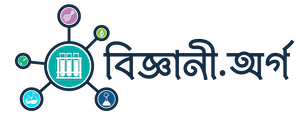
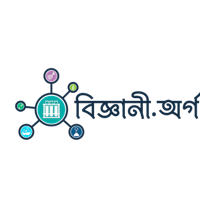
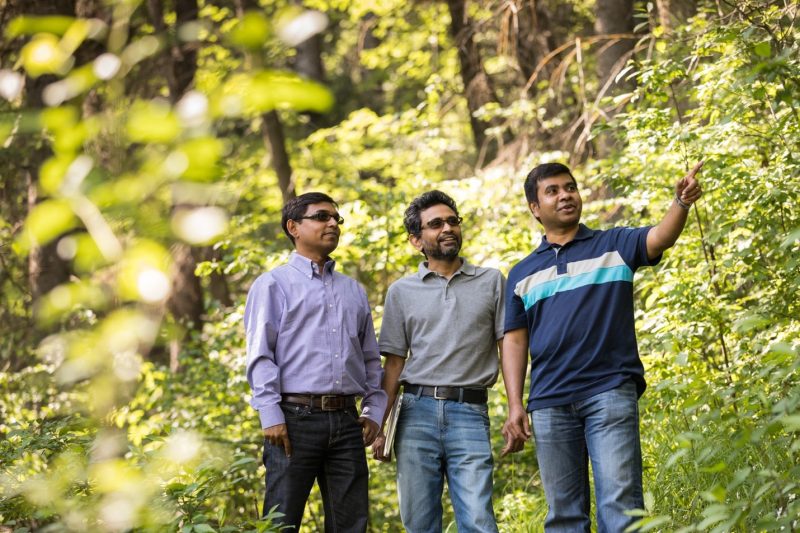



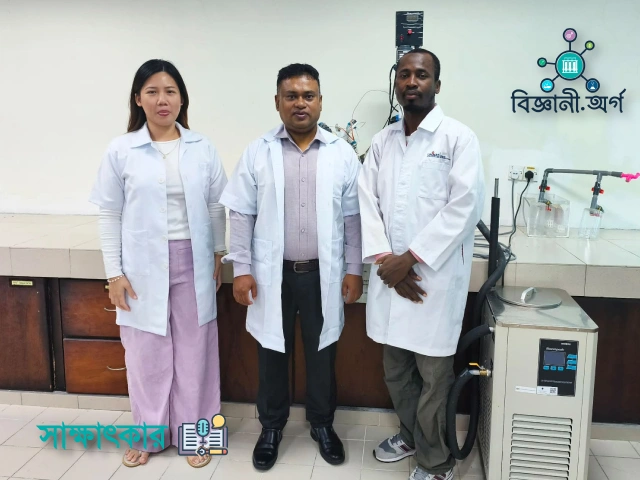
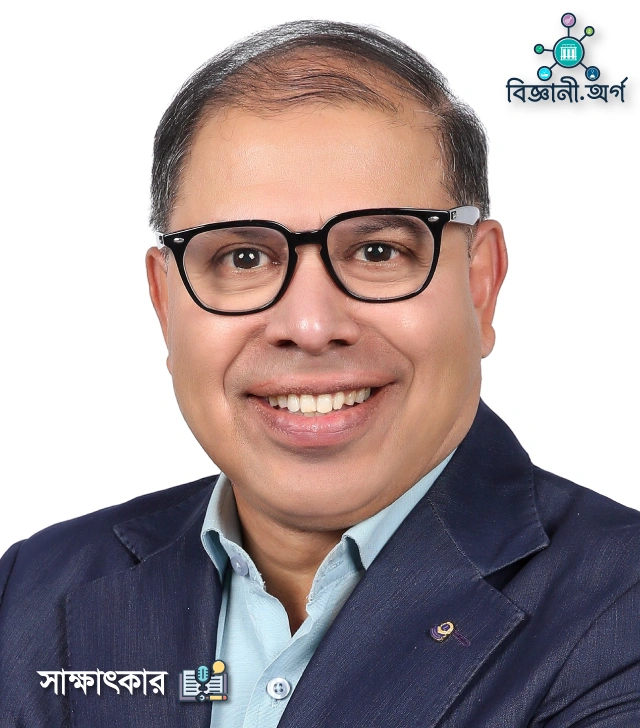
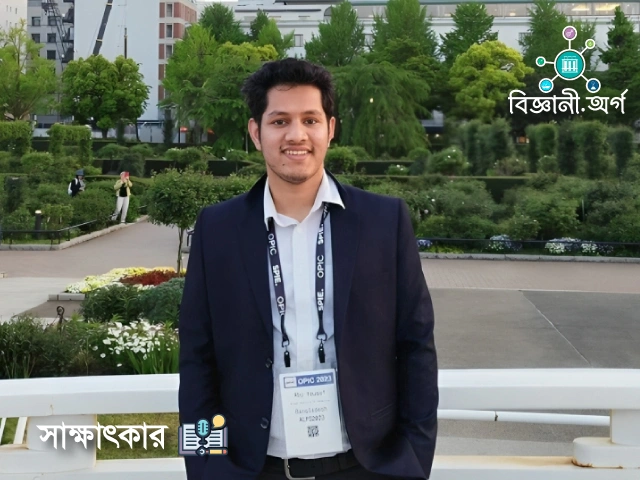
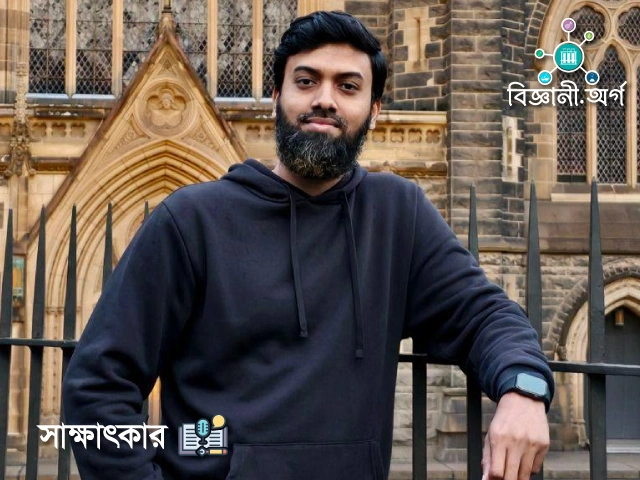
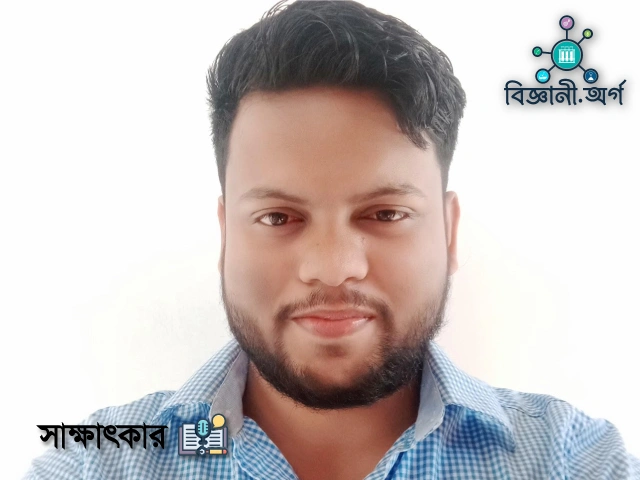
Leave a comment